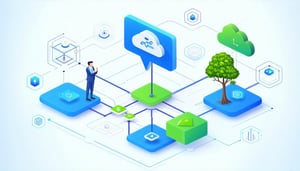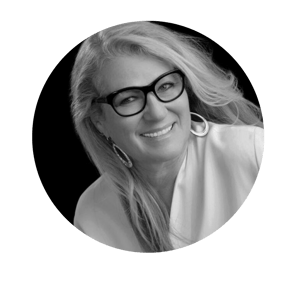The Referral Reality Check
Most law firms chase clients the same way they did twenty years ago. A networking event here, a cold call there, maybe a LinkedIn message if they're feeling particularly modern. But here's what's actually happening in 2025: your potential clients aren't waiting for your business card at the country club anymore.
They're researching you online before you even know they exist. They're asking their CFO's college roommate for recommendations. They're checking what your existing clients are saying about you on industry forums you've never heard of.
The old playbook assumed a linear path: meet prospect, pitch services, close deal. Reality looks more like this: the prospect has a problem, asks their network, researches solutions, evaluates multiple options, consults internal stakeholders, then maybe—maybe—reaches out to you.
Why Ecosystem Thinking Changes Everything
Smart firms are building what we call client acquisition ecosystems. Instead of hunting individual prospects, they're creating interconnected networks where referrals, reputation, and relationships compound naturally.
Think about it this way: when a potential client needs legal services, they don't just need a lawyer. They need confidence that they're making the right choice. That confidence comes from multiple touchpoints—your website, their accountant's recommendation, an article you wrote that solved their exact problem, a case study that mirrors their situation.
The ecosystem approach connects these dots systematically.
Consider how ecosystem thinking might transform your client acquisition approach:
Nurturing Professional Networks: Instead of chasing individual prospects, focus on building relationships with complementary professionals who serve your target market. Regular educational sessions or information sharing with accountants, consultants, and other service providers can position you as the go-to legal resource for an entire professional community.
Systematic Client Success Programs: Your best clients often generate the highest-quality referrals. Implementing regular check-ins, proactive legal updates, and exclusive client events creates natural opportunities for recommendations while strengthening existing relationships.
Partnership Over Competition: Many prospects consult with multiple professional service providers before engaging legal counsel. Rather than viewing these other advisors as competition, consider how collaborative relationships could create referral opportunities that benefit everyone involved.
Building Your Own Ecosystem
The ecosystem approach requires thinking beyond your immediate client relationships. Map out the complete journey your ideal client takes from recognizing they need legal services to choosing you specifically.
Start with your existing successful client relationships. What other professionals did they work with? Who influenced their decision to hire you? What resources did they consult? This mapping exercise reveals the ecosystem that's already working—you just need to nurture it intentionally.
Next, identify the gaps. Where in the client journey are prospects getting stuck or confused? What information do they need that you're not providing? Who else could provide credible recommendations for your services?
The most effective ecosystems have three components: visibility (prospects can find and recognize your expertise), credibility (multiple sources validate your capabilities), and accessibility (it's easy for prospects to engage with you when they're ready).
Building this takes patience. You're not optimizing for quick wins—you're creating compound growth that accelerates over time. But firms that commit to this approach consistently outperform those still playing the numbers game with cold outreach.
Your clients aren't waiting for you to find them anymore. They're already talking to your ecosystem. Make sure that ecosystem is working in your favor.


